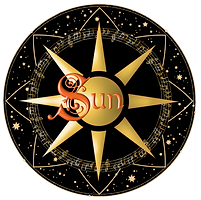Why a Rock Band as Heroes
- Hetty Crane

- Jan 15, 2020
- 3 min read
Updated: Mar 30, 2020
Over the holidays, it was reported to me that my nieces and nephews were looking at Daram, and in reading the back cover blurb, were intrigued and a little confused as to why P.J. and I chose a rock band as the protagonists for a fantasy adventure. They couldn’t see the connection and I guess I don’t blame them. Aside from the obvious notion that rock stars are sexy and glamorous, why choose a rock band for a fantasy novel set in a medieval time period?
It is an odd choice, especially as many of the books using rock stars as the central characters are pretty dismal and are pretty much just ‘adult’ fiction (read erotica or porn). It would seem a real stretch to take your average rock band and plunge them into a medieval/fantasy setting and have it work, given that the protagonists of this kind of fantasy adventure story usually are heroic and noble, and those are hardly the terms one would use to describe your average contemporary rock band. But our taste in rock bands does not run to the average hotel-destroying metal-type grunge bar band that was popular for most of the last half century and whose general popularity has extended into this new millennia.

The type of rock band we fixed upon was a different breed - an Art Rock band, a different type of rock phenomenon that sprang up in Britain in the late 1960s and early 1970s and was comprised of above-average musicians (virtuosos, in fact) with their own interest in fantasy and medievalism. Thus the connection we made between rock bands and fantasy is not all that far-fetched, given our own exposure to the prog rock era in the ‘70s. (We were, of course, very young, and exposed to prog rock and fairy tales, Tolkien and Lewis at approximately the same time).
For anyone who does not know progressive rock music, with its roots in classical and folk music, as well as in traditional rock 'n' roll, you’ve only to Google images of the many bands popular in the early 70s, and you’ll get the connection.

The ‘70s was the era of free love, flower power, psychedelia and harking back to an earlier, golden time in British history. Much like the Pre-Raphaelite artists of an earlier age who revolted against the severe strictures and fashions of Victorian morality, the proggers rejected the drab realities of post-war Britain, its social restrictions and cultural mores, and expressed themselves in elaborate funky costumes with bold decorative patterns, reminiscent of the colourful organic inventiveness of medieval design and the Pre-Raphaelite predilection for velvet and silks. Prog music draws on folk tales and fantasy for narrative content and uses complexities of technique and structure and the rhythms of classical composition and jazz, as well as using traditional rock and folk idioms here and there. It outright rejects the simplicity (and sometimes mindlessness) of standard rock 'n' roll.

Groups like Genesis and Caravan, Gentle Giant, King Crimson, Jethro Tull, Renaissance, Queen, Gryphon, Greenslade, Nektar, ELP and Yes all dressed in exotic costumes and wrote complicated, symphonically influenced music that relies on musicianship and virtuosity. The melodically sophisticated music and showmanship is vastly entertaining in its theatricality and is stimulating intellectually. And the art rock form carries on with younger groups in this millennium, with bands like Dream Theater, Porcupine Tree, Spock’s Beard and Transatlantic.
Given this type of rock band, is it such a stretch that these kinds of musicians could learn to be noble and even heroic as characters in a fantasy adventure story? Who better than these young virtuoso musicians to visit a medieval world where music has fantastical properties and is imbued with a special magic? These musicians have flash, dash, and especially comic potential and are perfect candidates to invade the fanciful world of Taihandria so that we might chronicle their adventures.
Hetty January 8, 2016




Comments